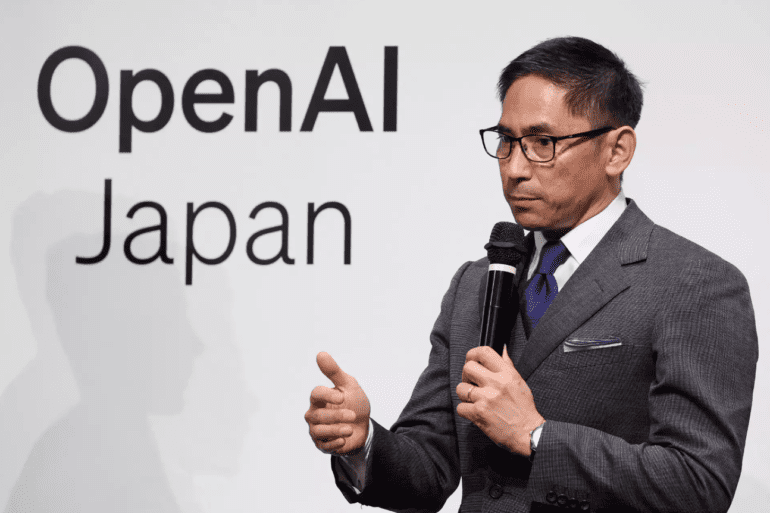- OpenAI expands with a Tokyo office, introducing a specialized GPT-4 model for Japanese.
- The move underscores the importance of localizing AI tech for diverse markets.
- Competition from SoftBank’s SB Intuitions was noted, but OpenAI strategically positions itself.
- Tadao Nagasaki was appointed to lead OpenAI Japan, focusing on enterprise partnerships.
- ChatGPT’s enterprise version gains traction with clients like Daikin and Toyota.
- GPT-4 promises enhanced linguistic depth and cultural sensitivity for Japanese communication.
- Early access to GPT-4 is offered to select businesses, with broader availability via OpenAI API later.
Main AI News:
Expanding its global footprint, OpenAI launches its Tokyo office, introducing a specialized GPT-4 model tailored for Japanese communication. This strategic move not only underscores the company’s commitment to tapping into Japan’s market but also highlights the necessity of localizing AI technologies for diverse linguistic landscapes. With the increasing scrutiny on AI’s societal impacts, OpenAI recognizes the imperative of establishing a physical presence to navigate and shape regulatory discourse effectively.
Despite its formidable reputation, OpenAI faces formidable competitors, notably SoftBank’s SB Intuitions, striving to leverage Japan’s burgeoning interest in AI. With a modest workforce of 1,200 worldwide, OpenAI remains valued at approximately $80 billion, facing the challenge of scaling operations to meet escalating demands. Following its successful foray into Europe, including offices in London and Dublin, Tokyo emerges as OpenAI’s inaugural Asian hub, signifying a pivotal milestone in its global expansion strategy.
CEO Sam Altman underscores Japan’s fusion of tradition and technology as a compelling rationale for establishing a regional base. However, OpenAI’s expansion reflects a calculated approach, leveraging geographical strengths and aligning with emerging regulatory trends. From the UK’s AI talent pool to the EU’s regulatory leadership, each market entry embodies strategic foresight.
At the helm of OpenAI Japan is Tadao Nagasaki, bringing a wealth of experience from Amazon Web Services. Tasked with fortifying OpenAI’s market presence, Nagasaki’s leadership underscores the company’s focus on enterprise partnerships. OpenAI’s clientele, including industry giants like Daikin and Toyota, underscores the growing relevance of AI in diverse sectors.
Empowering Business: OpenAI’s Japan Venture
Under Nagasaki’s stewardship, OpenAI Japan aims to bolster its local team, amplifying its engagement with Japanese enterprises. The company’s enterprise-oriented ChatGPT version has already garnered traction, offering enhanced privacy and customization features. Leveraging ChatGPT for public service optimization reflects OpenAI’s commitment to societal impact.
While ChatGPT boasts multilingual proficiency, the forthcoming GPT-4 iteration optimized for Japanese promises unparalleled linguistic depth and cultural sensitivity. This enhancement aligns with Japan’s nuanced communication norms, particularly in business contexts, ensuring heightened effectiveness in customer service and content creation.
Furthermore, OpenAI emphasizes the superior performance of its custom model, boasting enhanced speed and cost efficiency compared to its predecessors. Early access to the GPT-4 model will be selectively granted to local businesses, with broader availability through the OpenAI API in the near future. As OpenAI continues to pioneer advancements in AI localization, its Tokyo venture exemplifies a strategic convergence of technological innovation and market dynamics.
Conclusion:
OpenAI’s establishment in Tokyo and the introduction of the GPT-4 model for Japanese signify a strategic move to tap into Japan’s burgeoning AI market. By tailoring AI solutions to local linguistic and cultural nuances, OpenAI aims to bolster its competitive edge. The appointment of Tadao Nagasaki and the focus on enterprise partnerships highlight the company’s commitment to driving business growth in Japan. This expansion not only diversifies OpenAI’s geographical presence but also positions it to capitalize on the growing demand for AI-driven solutions in the Japanese market.

